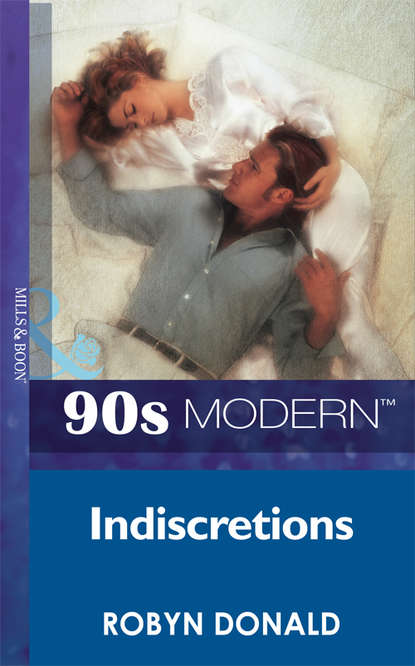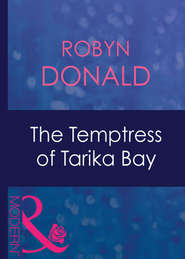По всем вопросам обращайтесь на: info@litportal.ru
(©) 2003-2024.
✖
Indiscretions
Автор
Год написания книги
2018
Настройки чтения
Размер шрифта
Высота строк
Поля
“Yes,” she said huskily, trying not to swallow.
Broad shoulders lifted in a shrug, but she knew he’d noticed her response. However, his voice was almost indolent, as he said, “You’re the right build and height to be of German descent. Although your coloring looks more Norse.”
Of course he wasn’t so crude as to scrutinize her tall, longlimbed body. Nevertheless, although his dark lashes hid his eyes, she felt exposed to the naked force of his interest, and to her horror her skin pulled tight and an unfamiliar sensation prickled in her breasts. Appalled, she wondered how the mere sound of a man’s—a stranger’s—voice could produce such a violent and unwanted physical response.
“It was,” she returned dismissively, “just a family story, and almost certainly untrue. Families get the weirdest ideas about their antecedents.”
“Ah, all those ancestors who were supposed to be descendants of kings and turn out to have worked as swineherds on the royal estates,” he said, a note of irony coloring the deep voice. “It’s a natural human instinct, I suppose, to put the best gloss on one’s circumstances.”
Once more her eyelids flew up. She met a gaze that was cool and glinting, a face that was a subtle challenge. He must know, she thought dazedly.
No, he couldn’t!
Dry-mouthed, she grabbed for equanimity. “I suppose it is. What did you want to talk to me about, Mr. Leigh?”
He waited until the waitress had departed, then said, “What is wrong with the New Zealand interpreter? And please call me Nicholas, as I fully intend to call you Mariel from now on.”
She drank some mineral water, grateful for its cold fizz and soothing passage down her raw throat. “What made you think there was something wrong?” she countered, unsure of the correct way to deal with this.
“Your face and my own instinct. If I hadn’t been sure of it, that swift glance you exchanged with your Japanese counterpart would have convinced me.”
Dismayed, she said, “You can’t have seen anything in my expression!”
“Don’t worry, I’m sure no one else did. As I said, I happened to be wondering already, and your face was too still. You looked as though you were urging him on, mentally helping him.”
She blinked. This man was dangerously observant, and astute enough to understand what those keen eyes saw. Choosing her words with caution, she said, “There’s nothing wrong with his work. He’s a perfectly competent—”
“At this level,” he interrupted ruthlessly, “competence is not good enough, as you are well aware.”
Of course she was.
“Very well,” she said steadily. “He’s missing nuances.”
“Right. I’ll tell the minister.”
That inconvenient curiosity drove her to ask, “Where do you fit into this?”
His wide, sensuously molded mouth moved in a smile that curled her toes. “I’m a diplomat,” he said, the words almost a taunt.
“Your letter didn’t sound as though—” She stopped and drew in a startled breath. God, how could she have said that? But he didn’t seem like the diplomats she’d known. He stood out, elemental and untamed as a wolf amongst wellfed, domesticated lapdogs. She began again. “I thought you were a businessman.”
His lashes were long and thick and dark, darker even than hers. They drooped for a second, then rose to reveal a cool, unreadable stare. “I have an interest—purely advisory—in a trust that deals with venture capital for ideas, some of which are exported.”
She met the challenge of his glance with a glinting, blue-eyed one of her own. “What will happen to the interpreter? Will he be sacked?”
Unhurriedly he drank some of the whiskey, his expression guarded but assured. In his dinner jacket he was the epitome of elegance, perfectly at home in this luxurious place. “I doubt it very much,” he said with an indifference that came close to being insulting. “He’ll just get extra training. However, that’s not the point. This is an important meeting, and we need the best. You can take his place.”
“No!” The word was out before she was able to stop it.
“Why not?” he asked, that concentrated gaze speculative as he studied her face.
Resisting the compulsion of those gleaming eyes, she parried, “How do you know I’m any better?”
“Just before I came down to dinner I got a fax from Tokyo congratulating me on getting a Japanese secretary,” he said dryly. “That’s good enough for me.”
Any further objection would have been suspicious; it might even give rise to questions. And although eight years ago when she’d done her first job for the hotel the security check had turned up nothing, she wasn’t perfectly safe. She never would be. She knew, none better, that every new person who checked it could turn up a small piece of information that would, if followed through, eventually damn her.
But she said feebly, “I’m hired by the hotel.”
His hard, beautifully chiseled mouth curved into a mirthless smile. “Somebody will contact the hotel management,” he said smoothly.
Neither Liz Jermain, the manager, nor her formidable grandmother would refuse his request. The hotel’s reputation had been built on just such extra services. And that, she told herself sternly, was what she was there for, after all—to make sure that everything went perfectly.
“Well, I was hired as a backup, so it will be all right,” she said, trying not to sound as reluctant as she felt. “I was a bit worried about the other guy. He’s good, but just not quite good enough. I wouldn’t like anything I did to lose him his job.” She stole a sideways glance, wondering whether she had appeased the curiosity her first instinctive refusal must have aroused.
It was impossible to tell. Although he smiled, no warmth reached his eyes, and there was an air of calculation about him that chilled her.
“Nothing you did would lose him his job,” he said enigmatically. “If that happens—and it seems highly unlikely because good Japanese interpreters are fairly thin on the ground in New Zealand—it will be his own inadequacy that does it. So forget about him and think of this as your patriotic duty.”
Did he see the tiny, momentary flicker of pain in her eyes, the sharp, deep inner reaction to his words? “What did Edith Cavell say just before she was shot? ’Patriotism is not enough.’ I prefer to think I owe my loyalty to humanity.”
“Naturally. However, it’s almost impossible to grow up without feeling some sort of emotion for the country one was born in. Especially one as beautiful as New Zealand. How old were you when you left?”
“Eighteen.”
“And where did you go then?”
“To Japan to teach English for a year.”
He gave her another of those assessing glances. “That’s a long way from home and a totally different culture. Were you homesick?”
“Not really,” she said cautiously. “I was lonely, though, for a while.”
“You were an adventurous eighteen-year-old.”
“No more so than most.” She stopped. “You can’t be interested in this.”
His smile had a spark of self-derision in it. “Oh, I’m always interested in a beautiful woman.”
“Then you’re lucky, because there are several in this room who seem more than interested in you,” she said calmly, picking up her bag as she rose to her feet. She’d been conscious of those looks, some surreptitious, more quite open, since she’d been in the bar. For some reason they set her teeth on edge. It must have been this that added the sting to her tone as she went on, “Each one is much more beautiful than I am, I assure you.”
“Sit down.” He didn’t touch her, didn’t even move, but for a moment the breath stopped in her throat. “That was crass,” he said stiffly. “I’m sorry.”
He even looked sincere. Why, then, was she almost certain that he was lying, that his remark had been made intentionally?
It was impossible to imagine him being so insensitive unless he did it deliberately. Behind the spectacular face was a cold, incisive brain, and for some reason he was trying her out.
“Let’s start again,” he said. “What happened after your stay in Japan?”











